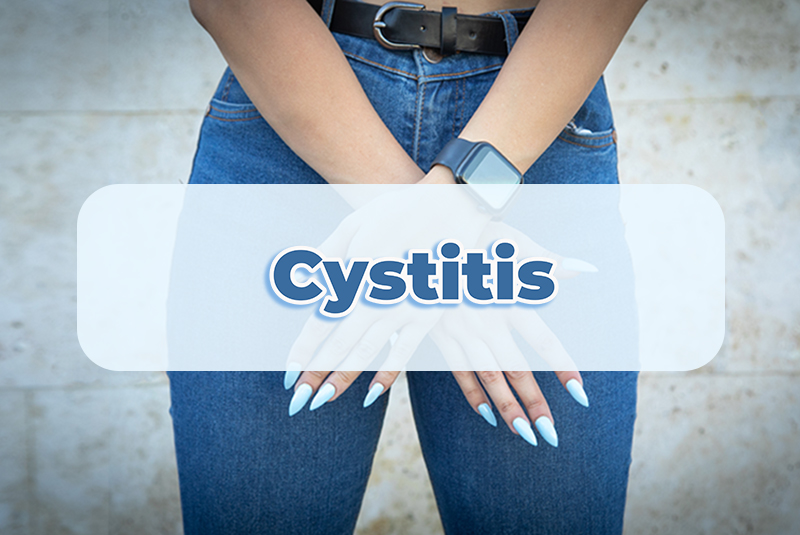Cystitis is a painful urinary tract condition that is more common in women. Urologists diagnose cystitis based on the immediate symptoms and medical history evaluation. Early diagnosis improves chances for successful treatment. If left untreated, the infection will spread to the kidneys and become a serious health problem. Urologists treating people with this condition need to assign the appropriate diagnosis codes in patient records and in claims submitted to insurance companies. Relying on the services of a urology medical billing company can help physicians submit claims with the correct diagnosis and procedures codes for appropriate reimbursement.
Cystitis can be either acute (that occurs suddenly) or interstitial (a chronic or long-term case of cystitis that affects multiple layers of bladder tissue). The exact cause of this condition depends on the type of cystitis. In most cases, the cause of cystitis is due to a urinary tract infection (UTI) that happens when bacteria enter the bladder or urethra and begin to multiply. It can also occur due to reaction of certain drugs and medications, radiation therapy, ongoing use of a catheter, and irritating hygiene products. Though cystitis is more common in women due to their shorter urethra, men who have an enlarged prostate are also at high risk of developing the condition.
ICD-10 Diagnosis Codes for Cystitis
Urologists diagnose cystitis based on the patient symptoms and medical history. A detailed urinalysis may be performed to determine the signs of infection and the type of bacteria in the urine. Urologists may also perform a cystoscopy – that collects a biopsy of bladder tissue sample that can be used for further testing. Imaging tests are not often necessary, but they can be helpful in diagnosing cystitis. In certain cases, an X-ray or ultrasound can help rule out other causes of cystitis, such as a structural issue or tumor. Early detection and diagnosis of bacterial infections can help develop a thorough and effective treatment plan. The ICD-10 codes for cystitis are as follows –
- N30 Cystitis
- N30.0 Acute cystitis
- N30.00 …… without hematuria
- N30.01 …… with hematuria
- N30.1 Interstitial cystitis (chronic)
- N30.10 …… without hematuria
- N30.11 …… with hematuria
- N30.2 Other chronic cystitis
- N30.20 …… without hematuria
- N30.21 …… with hematuria
- N30.3 Trigonitis
- N30.30 …… without hematuria
- N30.31 …… with hematuria
- N30.4 Irradiation cystitis
- N30.40 …… without hematuria
- N30.41 …… with hematuria
- N30.8 Other cystitis
- N30.80 …… without hematuria
- N30.81 …… with hematuria
- N30.9 Cystitis, unspecified
- N30.90 …… without hematuria
- N30.91 …… with hematuria
Treatment Modalities for Cystitis
In most cases, mild cystitis will resolve by itself within a few days. Cystitis caused by bacterial infection is generally treated with antibiotics. Treatment for other types of cystitis depends on the specific factors that cause the condition. Home remedies like – applying heating pads (to the abdomen or back), over-the-counter pain relievers, drinking lots of fluids and avoiding consumption of caffeinated drinks (that irritate the bladder) – can help reduce the symptoms. Surgery is recommended when other treatments fail. Chronic cystitis often requires surgery to repair a structural issue.
Here are the CPT codes that can be used with a N30 diagnosis code for Cystitis –
- 52000 Cystourethroscopy (separate procedure)
- 52001Cystourethroscopy with irrigation and evacuation of multiple obstructing clots
- 52005 Cystourethroscopy, with ureteral catheterization, with or without irrigation, instillation, or ureteropyelography, exclusive of radiologic service;
- 52007 Cystourethroscopy, with ureteral catheterization, with or without irrigation, instillation, or ureteropyelography, exclusive of radiologic service; with brush biopsy of ureter and/or renal pelvis
- 52010 Cystourethroscopy, with ejaculatory duct catheterization, with or without irrigation, instillation, or duct radiography, exclusive of radiologic service
- 52204 Cystourethroscopy, with biopsy(s)
- 52214 Cystourethroscopy, with fulguration (including cryosurgery or laser surgery) of trigone, bladder neck, prostatic fossa, urethra, or periurethral glands
- 52224 Cystourethroscopy, with fulguration (including cryosurgery or laser surgery) or treatment of MINOR (less than 0.5 cm) lesion(s) with or without biopsy
- 52234 Cystourethroscopy, with fulguration (including cryosurgery or laser surgery) and/or resection of; SMALL bladder tumor(s) (0.5 up to 2.0 cm)
- 52235 Cystourethroscopy, with fulguration (including cryosurgery or laser surgery) and/or resection of; MEDIUM bladder tumor(s) (2.0 to 5.0 cm)
- 52240 Cystourethroscopy, with fulguration (including cryosurgery or laser surgery) and/or resection of; LARGE bladder tumor(s)
- 52250 Cystourethroscopy with insertion of radioactive substance, with or without biopsy or fulguration
- 52260 Cystourethroscopy, with dilation of bladder for interstitial cystitis; general or conduction (spinal) anesthesia
- 52265 Cystourethroscopy, with dilation of bladder for interstitial cystitis; local anesthesia
- 52270 Cystourethroscopy, with internal urethrotomy; female
- 52275 Cystourethroscopy, with internal urethrotomy; male
- 87086 Culture, bacterial; quantitative colony count, urine
- 87088 With isolation and presumptive identification of each isolate, urine
- 87186 – Susceptibility studies, antimicrobial agent; microdilution or agar dilution (minimum inhibitory concentration [MIC] or breakpoint), each multi-antimicrobial, per plate
- 87184 – Susceptibility studies, antimicrobial agent; disk method, per plate (12 or fewer agents
HCPCS Codes
- P7001 Culture, bacterial, urine; quantitative, sensitivity study
- J1212, Injection, DMSO, dimethyl sulfoxide, 50%, 50 ml
The outlook for cystitis generally depends on its type and related symptoms. In general, the outlook for cystitis is good. However, it is important to treat the underlying condition as soon as possible. If a person has mild to moderate symptoms, cystitis may be manageable using over-the-counter pain relievers and home remedies. On the other hand, more complicated types of cystitis require specific treatments. Therefore, it is important for patients to consult their healthcare professional if they think they have symptoms of cystitis. Billing and coding for urology disorders can be challenging. Relying on the services of a medical coding company can help urologists assign the correct diagnosis codes in conjunction with procedure information on claims to support the medical necessity for the service rendered for appropriate reimbursement.



0 Comments